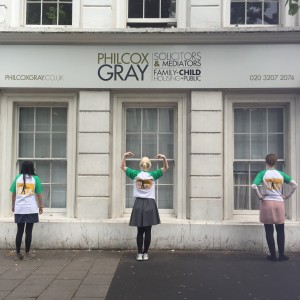Beverley King, Partner and joint Head of the Family Department at Philcox Gray, recently represented the father of a two year old child on a successful application for a Declaration of Parentage and Child Arrangements Order in respect of contact.
The father had been in a relationship with the mother for some years prior to the birth of the child. The couple had been unable to conceive naturally and received IVF treatment, which concluded with the mother conceiving by sperm donation. As far as the father was concerned the clear intention at the time of the treatment was that he would be the legal parent of the child. All of the necessary forms were signed by both parents at the Fertility Clinic. The couple separated soon after the birth of the child and the father’s contact completely broke down when the child was approximately one year of age.
The father made applications to the court for a Declaration of Parentage and a Child Arrangements Order for regular contact. During the course of the proceedings the mother denied that the forms conferring legal parentage on the father had actually been signed by both of them at the Clinic. The mother effectively wanted to “wipe” the father out of the child’s life and was seeking a declaration that he was not the father of the child. The Clinic were very unhelpful during the proceedings and failed to produce important documents which supported the father’s case despite a number of Court Orders to do so . It actually took the Clinic over 6 months to disclose critically important documents. It was astonishing that the Clinic did not appear to take the court proceedings seriously until a Court Order with a penal notice attached ordered the Medical Director’s attendance at a court hearing if there was any further failure to produce information and documents.
The relevant forms were in fact never produced but other evidence was produced by the Clinic shortly before a contested hearing and this evidence proved that the forms had been signed. Without a doubt the Clinic’s limited disclosure of documents until the eleventh hour served to prolong the proceedings unnecessarily and increase anxiety for both the mother and father. Once the relevant documents were received from the Clinic, the mother withdrew her opposition to the father having a Declaration of Parentage in his favour. The Court formalised the parties agreement and made a Declaration of Parentage in favour of the father and also made a Child Arrangements Order in respect of contact. The father re-established contact with the child shortly after his second birthday. Contact is going well and the proceedings are continuing in respect of contact arrangements.
This was a very interesting case in a fairly new area of law. There have been recent high profile cases which exposed the administrative incompetence of some Fertility Clinics. The case of Z Fertility Clinic in 2013, brought to the attention of the Human Fertilisation and Embryology Authority (HFEA) the shortcomings of clinic Z. Following this the HFEA required all 109 Fertility Clinics to audit their legal parenthood records. A staggering 46 % of Clinics discovered anomalies in their legal parenthood consent forms. In September 2014 the HFEA wrote to all Clinics and advised them to seek legal advice if necessary and to also inform clients and their partners of the anomalies. All Fertility Clinics should therefore have been tightening up their administrative practices and assisting parents where there were errors with parenthood forms. The case law clearly states that whatever the administrative mistakes of Fertility Clinics with parenthood forms, the Court can rectify them and make Declarations of Parentage .
This case was the first to deal with an application for a Declaration of Parentage in the context of a dispute about contact and where there was clear opposition from the biological parent to the Declaration of Parentage being made. Unfortunately, the father in this case was very much let down by the Fertility Clinic. There is no doubt that the father would have re-established contact with his child months sooner if there had there been proper disclosure of documents in a timely fashion. The Judge was very critical of the Clinic. She found it “alarming and shocking” that there was a further case of this nature before the courts where there was “such striking ineptitude” from an organisation which is subject to statutory regulation and statutory monitoring by the HFEA. Clearly the case was not brought to light by the Clinic in their Legal Parenthood Audit and an investigation of this failing is to take place at the instigation of the Chief Inspector of the HFEA.
Not surprisingly, the Clinic did not oppose an order to pay all of the father’s legal costs in respect of his Declaration of Parentage application.
Read the full judgement by clicking here http://www.bailii.org/ew/cases/EWHC/Fam/2015/3601.html
If you need help or advice with any family matter, please contact us to see if we can assist you.





